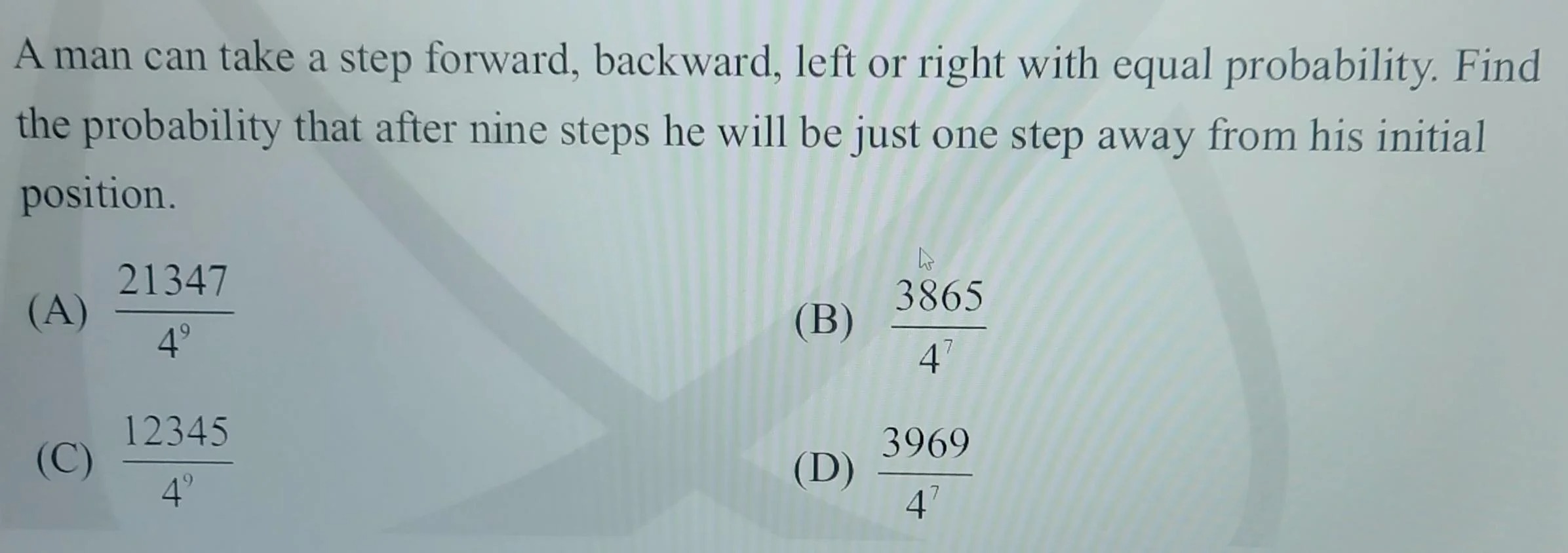Question
Question: A man can take a step forward, backward, left or right with equal probability. Find the probability ...
A man can take a step forward, backward, left or right with equal probability. Find the probability that after nine steps he will be just one step away from his initial position.

\frac{21347}{4^9}
\frac{3865}{4^7}
\frac{12345}{4^9}
\frac{3969}{4^7}
\frac{3969}{4^7}
Solution
We want the walker to end at one of the four neighbors: (1,0), (–1,0), (0,1), or (0,–1) after 9 steps. Consider the case ending at (1,0). Let the number of right, left, up, and down steps be r, l, u, and d respectively. Then:
• r − l = 1 (so r = l + 1)
• u − d = 0 (so u = d)
• r + l + 2u = 9
Set l = t and u = k so that
( t+1 ) + t + 2k = 9 ⟹ 2t + 2k = 8 ⟹ t + k = 4.
Thus for each nonnegative integer t with k = 4 – t, the numbers are:
r = t+1, l = t, u = d = 4 – t.
The number of ways for a given (t, k) is:
N(t) = 9!/( (t+1)! · t! · (4–t)! · (4–t)! ).
Calculating for t = 0, 1, 2, 3, 4 we find:
- t = 0: N(0) = 9!/(1!·0!·4!·4!) = 126
- t = 1: N(1) = 9!/(2!·1!·3!·3!) = 2520
- t = 2: N(2) = 9!/(3!·2!·2!·2!) = 7560
- t = 3: N(3) = 9!/(4!·3!·1!·1!) = 5040
- t = 4: N(4) = 9!/(5!·4!·0!·0!) = 126
Total for (1,0) is: 126 + 2520 + 7560 + 5040 + 126 = 15876.
By symmetry there are 4 such cases (for (1,0), (–1,0), (0,1), and (0,–1)), so the total favorable number is
4 × 15876 = 63504.
Since the total number of possible walks is 49, the probability is
4963504.
Noting that 49=47×16 and 63504÷16=3969, we can write the probability as
473969.
